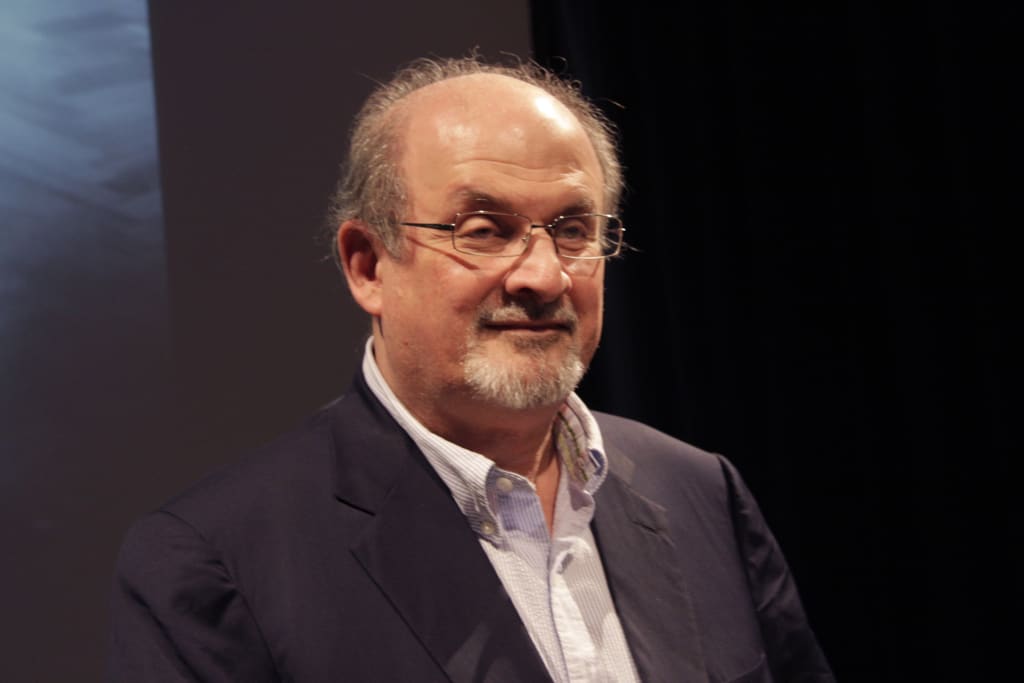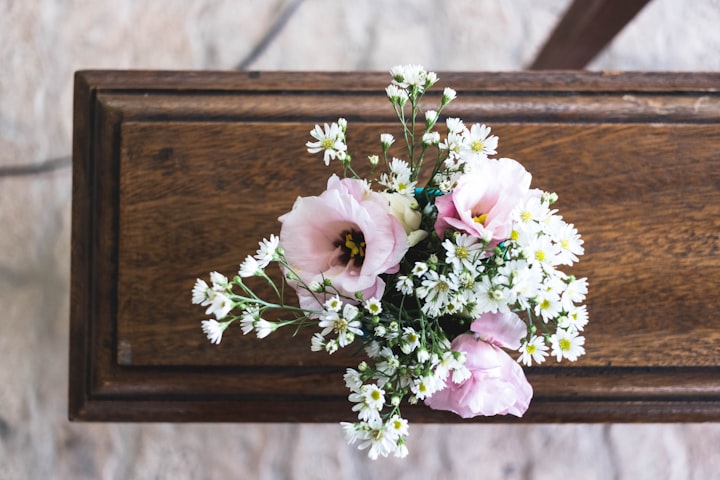Salman Rushdie, New Yorker
A drink with one of our greatest contemporary authors allows a glimpse of his brilliance, his curiosity, his passion — and his sense that we live in a dangerous world.

Horrifying news is all the more shocking if you yourself were only just talking and laughing with the victim of a terrible attack. Just a few days before Sir Salman Rushdie was gravely injured onstage in Chautauqua, in western New York, I was chatting with him in the lounge of a private members’ club in lower Manhattan, the city that, for the past 23 years, has been the writer’s adopted home. We were a gathering of three — Salman and I and Jeremy Frommer, Executive Chairman of Creatd, Vocal’s parent company and one of my oldest friends. Turns out that Rushdie and Frommer were members of the same club — when I’d discovered that the two of them hung out there, I felt I had to bring these unique people together.
Jeremy and I swirled sake on the rocks; Rushdie sipped an Old Fashioned. The three of us were drinking and talking like the New Yorkers we all knew ourselves to be. Salman Rushdie is 75 years old; a time when a fellow might rest on his laurels. But Rushdie the novelist never tires of the novel, the new: his online experiment on Substack, Salman’s Sea of Stories, was a way to keep himself fresh, he said; just like the teaching he does at NYU, where he has been Distinguished Writer-in-Residence since 2015. He spoke of his graduate students with warmth and joy — with the sense that he had as much to learn from them as they did from him.
In fairness — and maybe I’m preening a little here — I was the only native New Yorker in our crew. I was born on the Upper West Side, though I migrated to London as a teenager; however, no matter how many decades I lived abroad, I continued to identify as a New Yorker. Jeremy grew up in Rockland County, and lived a number of years in New Jersey — but recently has embraced the city as his natural home. And Salman Rushdie, of course, grew up in Bombay, the city he depicted so brilliantly in his Booker Prize-winning novel Midnight’s Children — now a classic 40 years after it appeared. For many years he made his home in London, but a little over a decade after the fatwa that forced him into hiding — following the publication, in 1988, of The Satanic Verses, which Ayatollah Ruhollah Khomeini of Iran deemed blasphemous for its fictional depiction of the Prophet Muhammad — Rushdie moved to Manhattan, where he has lived for the past twenty-three years. And every New Yorker, I think, is a New Yorker by choice and inclination.
Call me biased — but my friend Salman belongs here, in the city (so nice they named it twice) that is always remaking itself, telling itself as a novel is told. Shortly after moving here at the turn of the century, Rushdie published his first truly New York-based novel, Fury — an extraordinary title for a book that was published just days before the 9/11 attacks. His works — fourteen novels, two wonderful books for children, an extraordinary memoir, numerous essay collections — are always rich and wild, full of his love of life. “I have always been attracted to capacious, largehearted fictions, books that try to gather up large armfuls of the world,” he has written in reflecting on his ambitions as a novelist.
When you meet him, it is that capaciousness, that large-heartedness, that shines through — as well as his love of the city he now calls home. In the course of our conversation there was a long diversion into various environs in our beloved New-York, Manahatta as it was once called: he had recently become enchanted by the history of Murray Hill — having spotted the plaque to Mary Lindley Murray which is affixed to a building on 37th and Park and commemorates, without revealing the intricacies of the tale, the “signal service” she rendered to the Continental Army during the Revolutionary War. Needless to say he’d done his research and found her story. He couldn’t wait to share it with us.
We told him, in return, about VoiceMap, a self-guided tour app we had just downloaded; we regaled him with our discovery that the anodyne apartment building at 81 Bedford Street was once a CIA house where secret agents conducted illicit experiments with psychedelic drugs.
Perhaps it was our discussion of government action that turned our conversation to the state of the world. Jeremy and Salman come from very different backgrounds and are separated by a generation, but both share a combination of optimism and realism. Yet Salman felt that Jeremy’s optimism got the better of him when he suggested that life in the United States had unequivocally improved since — Jeremy pulled a date from the air — 1958. Salman pointed to the fact that there were now over 300 million guns in the United States; the country has the most heavily-armed civilian population in the world. (In fact, the figure is 393 million, or 120 guns per every 100 people in the US — men, women, children, everyone..) The recent decision by the Supreme Court to overturn Roe v Wade was also a cause for pessimism, Rushdie said. This most hopeful of men saw the shadow of darkness and violence cast not over himself — but over the country he had come to call home. It takes the right argument to get Jeremy to change his mind; Salman’s words convinced him.
And yet… here we were, a fortunate gathering, on a bright Manhattan evening, enjoying our drinks and each other’s company. Violence seemed very far away, and Salman Rushdie was full of energy and a sense of adventure. His new novel, Victory City, would appear in just over a month; and despite his affection for traditional fictional forms, he’d enjoyed the exercise of writing for an audience on the web. “It’s something new,” Salman said, with emphasis. “Why would anyone want to do what they’d done before?” He smiled and shrugged and took a sip of his Old Fashioned. We raised our glasses. We raise them still, to Salman, to what is new, to survival. We must not let violence dim our optimism, our hope.
About the Creator
Erica Wagner
Lead Editorial Innovator, Vocal. Author, critic, friend, parent, cook. New book: Chief Engineer: Washington Roebling, The Man Who Built the Brooklyn Bridge. Twitter: @EricaWgnr, Insta: @ericawgnr
Reader insights
Outstanding
Excellent work. Looking forward to reading more!
Top insights
Heartfelt and relatable
The story invoked strong personal emotions
On-point and relevant
Writing reflected the title & theme
Easy to read and follow
Well-structured & engaging content
Excellent storytelling
Original narrative & well developed characters
Eye opening
Niche topic & fresh perspectives







Comments (8)
This was lovely, thank you for sharing it with us. I wish I could feel hopeful about the world growing more tolerant and open-minded about ideas that challenge or offend, but we seem to be headed very much in the opposite direction.
Thank you for this. I am grateful that he is getting better and that you had this moment with him. I just bought his last collection of essays - Languages of Truth - a week before the attack, and had a long chat with the owner about his work. I still wonder what she is thinking today and may have to head back out and grab everything by the man that I have not read yet.
Informational... He has other books that dont condemn religion and he was very crtical of sections therein... The same are in the Bible, in a different language.
It never ceases to amaze me when we cross paths with people at precipitous moments.This was a pleasure to read and a good reminder that hope is a precious gift we must cherish.
Such a beautiful piece and written with so much warmth. Much love to you and Jeremy too.Salman Rushdie sounds like someone who had a big passion for what he did, and I always wished I could meet someone like him.
Wonderful piece.
Thank you for writing this. It felt personal and that's a good thing.
Thanks for sharing your experience with this amazing author. What an opportunity to share such an evening with such an incredible human.